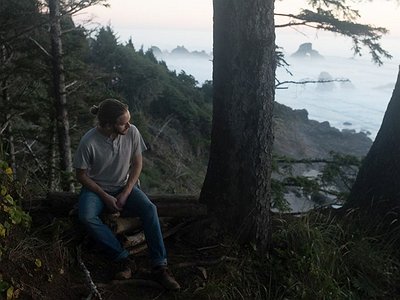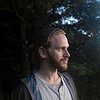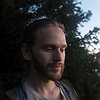Name: Eric Phillips aka Kennebec
Occupation: Composer, producer, multi-instrumentalist
Nationality: American
Recent release: Kennebec's sophomore album Without Star or Compass is slated for release on October 7th 2022. It features collaborations with Samuel T. Herring, Sudan Archives and Yazz Ahmed. First single “The Great Divide” is out via Night Times Stories. Pre-order Without Star or Compass here.
[Read our Yazz Ahmed interview]
If you enjoyed this interview with Kennebec and would like to find out more about his work or check out more music, visit him on Instagram, twitter, Soundcloud, and Facebook.
When did you start writing/producing/playing music and what or who were your early passions and influences? What was it about music and/or sound that drew you to it?
That’s such a big question. I’ve had many wide ranging phases.
I first really fell in love with music when I was 12 and I found my friend’s dad’s copy of Jimi Hendrix's Bold as Love. I had an electric guitar and wanted to play Led Zeppelin and the Red Hot Chili Peppers and all that. My taste in music really expanded in High School and even more in college as I just got exposed to more stuff.
I think some of my really formative memories that pulled me in to music for life were just late nights on my own as a teenager playing guitar in the basement and recording songs into early versions of Logic Pro, drenching everything in reverb and just feeling like time completely stopped and froze, being super super present and emotionally plugged in.
I was like oh, this is the best feeling, I feel really connected to this and want more of that feeling.
When I listen to music, I see shapes, objects and colours. What happens in your body when you're listening and how does it influence your approach to creativity?
Wow that’s an interesting question. I think for me this weird experience can happen where I feel really really present and kind of forget the outside world. My experience of time slows down or gets totally confused and I have no idea how much time passes, and it feels really emotionally connected, like I end up allowing myself to feel things that might get buried in the day to day going-ons, and it’s a cathartic feeling. And then other times I totally forget the experience afterwards like I just blacked out.
How it influences my approach to creativity I’m honestly not sure. I haven’t found the formula yet and I’m not sure it would be as exciting if I did understand. I like music being as mysterious as it is, I feel like that’s part of it’s magic.
How would you describe your development as an artist in terms of interests and challenges, searching for a personal voice, as well as breakthroughs?
I feel like it’s been a long and constantly evolving process.
I personally feel like understanding oneself is like that because we, like everything else in the world are always changing and a work in progress, so I feel like discovering out voices artistically is similar. I get to know myself better and with more clarity and honesty with age, but also I’m always changing so never fully known.
Musically I’ve been very exploratory. As I said I got into rock and ambient music at a young age but then I went to study Music Theory and Composition at NYU focusing on music for film, and that has had a huge impact. I still write music for documentaries and indie games and things like this, and I love it when music is evocative of story-telling and immersive like that. Studying music I learned a lot about harmony and rhythm and arranging in a way that really expanded my musical vocabulary way beyond that experience I had as a kid just being a guitar player, feeling like more of a composer.
I feel like my musical journey has really been about synthesizing all these things I love — folk music, ambient music, jazz, soundtrack music, hip-hop, indie rock. It’s a big project and I feel it’s taken a lot of experimentation and trial and error and it’s always an on-going process.
Tell me a bit about your sense of identity and how it influences both your preferences as a listener and your creativity as an artist, please.
Hmm ... That’s an interesting one, too ... I feel like that’s something I try to not consciously incorporate into my music.
Of course it must happen because I am a person in the world, and all the experiences I’ve had impact ‘who I am’ and how I feel, my beliefs about the world and my aspirations and all fo that inevitably comes out in the music — you can’t stop that. If you’re just honest then those things happen naturally inevitably. So I think at the moment I’m trying to focus on just being really honest with myself about what I like, what moves me, how I feel, rather than ‘what’s cool’ or hip or whatever.
In truth I think I try to consciously attach my identity to as few things as possible, including being a musician at all (though of course I’m sure I do do that on some level, it’s not like I have no ego) but I think a fluid identity is probably the most healthy one …
I feel like that question could open up many many other conversations so if anyone has additional thoughts they wanna talk about I’m all ears..
What, would you say, are the key ideas behind your approach to music and art?
I like this John Zorn thesis where he says that the markers of good music and art are four things: Honesty, Craft, Imagination and Catharsis. I think that’s what I aspire towards. I want to make really eclectic and imaginative music that inspires, and I want it to reach people and move them.
I’d also like my music to always feel like it’s evocative of a sense of place, like it outs you in a world. Lastly, I want to make music that is as nutritious and nourishing as I can manage.
How would you describe your views on topics like originality and innovation versus perfection and timelessness in music? Are you interested in a “music of the future” or “continuing a tradition”?
Wow these questions are bangers. I’ve definitely leaned much more heavily into originality and innovation so far. I just feel like I have a lot of creative ideas I want to try and some fresh concepts to bring to the table. I get bored when things are stale and repetitive, and maybe it’s because I have a short attention span (like many of us nowadays just totally inundated with new things every day.) But I love the idea of continuing tradition.
I’ve been kind of reflecting on the idea of heritage and continuing a tradition lately and bringing more of that mindset into what I do. I think I’d like to explore that more, and I think we societally desperately always need both and everyone likely has a place they can best fit on that spectrum.
There’s definitely not a right or wrong. Both have virtues and vices. We’re all a part of a long lineage of culture whether you want to be or not.
Over the course of your development, what have been your most important instruments and tools - and what are the most promising strategies for working with them?
Wow! Well I love to play my classical guitar, it’s a 1967 Sakazo Nakade. It’s the most inspiring thing for me to pick up, and I love learning different styles like some Joe Hisaishi tunes or Luiz Bonfa or Baden Powell.
Most important tool is your ear, and training it. So attentively listening to music and paying close attention to the aspects you want to learn from, whether it’s the saturation on the drums or the chord progression. This has to be a regular practice for growth in my opinion. So there’s the ear training, then there’s the theory — so learning music theory or understanding how to use Logic or Ableton, what EQ and compression are, etc.
And then there’s practice, so practicing your instrument, or making lots of songs and mixing them. All three have to be on-going practices of life — ear training, theory, practice.
Take us through a day in your life, from a possible morning routine through to your work, please.
I wake up around 8 or 9 and I usually eat a bit, run for 40 minutes or so, sit and meditate for 20 or 30 minutes. I need to train my body and my mind to focus each day.
Then I work on soundtrack music for a few hours, and take a little break. Then I’m usually working on new Kennebec music in the afternoon and evening, or teaching a guitar lesson or two. I love to smoke a joint and play guitar in my backyard around golden hour in the evening — that’s my best hour for creative work and writing new ideas. But each day really varies quite a bit.
I think I realistically end up working maybe like 7-10 hours a day. There have been times where it is more or less depending on what kind of soundtrack stuff I have coming in.
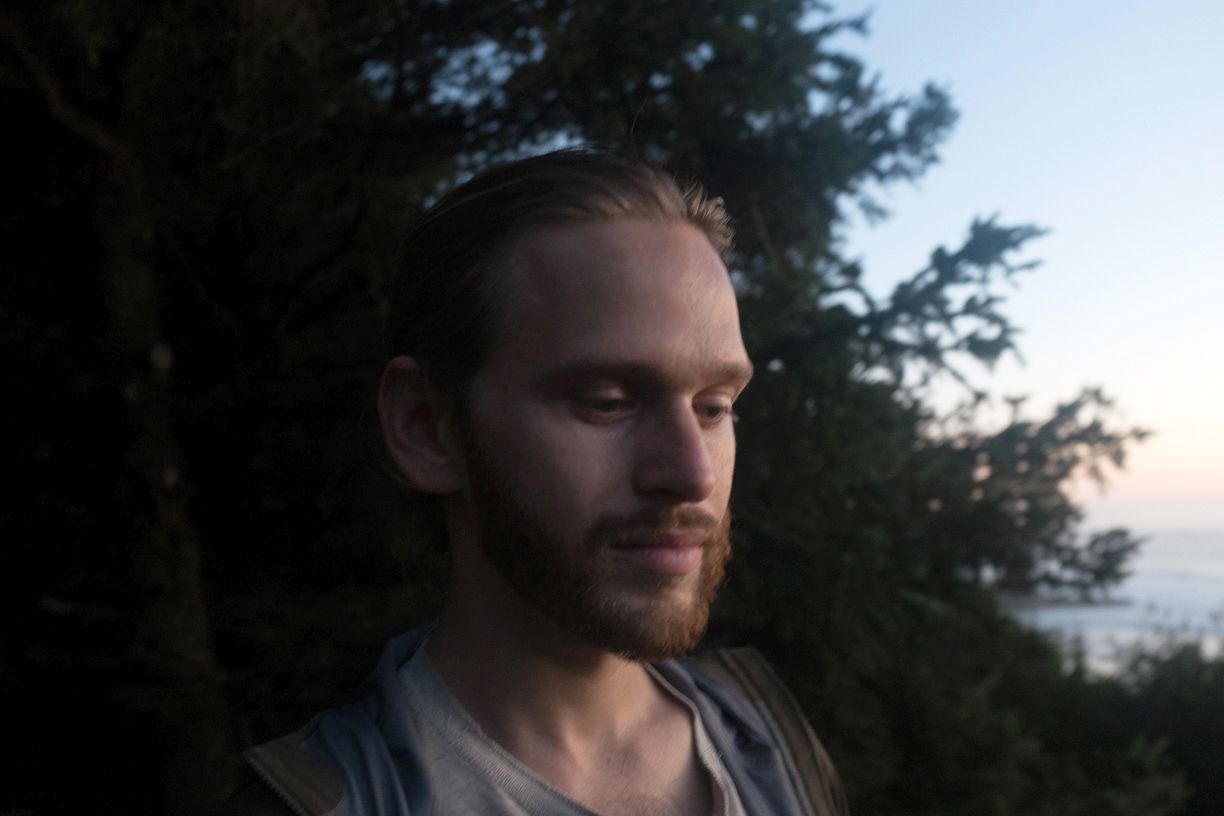
Could you describe your creative process on the basis of a piece, live performance or album that's particularly dear to you, please?
Yeah! One that’s close to my heart is “Friendship Song”.
I actually wrote that tune after a good friend of mine had told me his mom had come down with cancer. I had been playing out of this Joe Hisaishi guitar book and then improvised most of the song into my iPhone Voice Memos. I had been messing around with different versions of it for years, versions with drums and all these arrangements. Then I went on a camping trip with two other friends and was playing the song and a friends starting singing the melody jokingly with the words “Friendship Song.” It ended up being named that.
I just recorded it as a solo guitar song and added an outro. I wanted to be minimalistic and I layered just a few strings parts I wrote out for my friend Mirabai to play on violin and viola, Dylan to play on cello and Ross to play on upright bass.
Now we play it as the closer of our sets and it feels really good. I could talk more on creative process on my more involved songs, but that is a longer story and maybe for another conversation..
Listening can be both a solitary and a communal activity. Likewise, creating music can be private or collaborative. Can you talk about your preferences in this regard and how these constellations influence creative results?
Yeah wow! I’ve recorded my albums in a very solitary way — recording most of the instruments myself, mixing and producing myself. The instruments I don’t play, like the flutes and strings, are played by friends, but I still write their parts out for them, so I really am the dictator.
I think getting to be the leader of the ship is fun and easier to execute a singular mission, but I’ve been playing live more and have really loved opening the project up to other people’s inputs and improvisations more and more. Working with others is fun and surprising because you never know what they may bring to the table. I want to be more and more collaborative with Kennebec moving forwards, largely because it’s just so fun!!! Especially when you find great musicians to collaborate with — like Samuel T. Herring and Sudan Archives.
That was really amazing because Sam came up with such cool ideas that I never would have thought of on my own, and that back and forth led to such creative fun results. I definitely want tot collaborate with more vocalists and lyricists in the future — I think lyrics are such an incredible art that I don’t feel like I excel at so it’s great to collaborate with someone who has that as their greatest strength — we pair well in our process. So I feel like that was really fruitful.
When I do soundtracks, I am executing music that soundtrack someone else’s vision, whether it’s an environmental documentary or a creative immersive indie video game. I honestly think that that feels much more limiting, and those sorts of limitations make your job easier. Because you have less choices to make. And then it all becomes about how good is the vision of your collaborator, and you need to depend on them.
Working in groups is tough, like being in any relationship with others. But I think it’s healthy to learn or rely on others, even when they make mistakes, as it’s just an inevitable part of life — working with each other here on earth ... There’s huge pros and cons to all ways of doing things.
How do your work and your creativity relate to the world and what is the role of music in society?
Hm. I think that music and art is a deeply fundamentally human thing that we all really know and need in our bones. I think in the same way babies have language genes - if you put them near adult humans speaking they will just automatically learn the language - I think people have that with music, and it allows us to express emotions, pain, love, spiritual needs and connections and understand one another, and it helps life make a little bit more sense.
For me music is fun but I mainly turn towards it for calm, to center myself, to be in touch with how I feel, to feel connected and a sense of purpose in the universe, making life’s mystery make a little more sense. I think the dream and greatest aspiration is to have my music also provide that for others, but primarily it is something I need to explore for my own needs. I think music is literally physically and spiritually healthy for us to connect to, and we have healthier individuals and cultures the more honest and authentic and real music we can all connect to.
Maybe it goes deeper than that too - it’s hard to say, it’s part of that beautiful mystery of music.
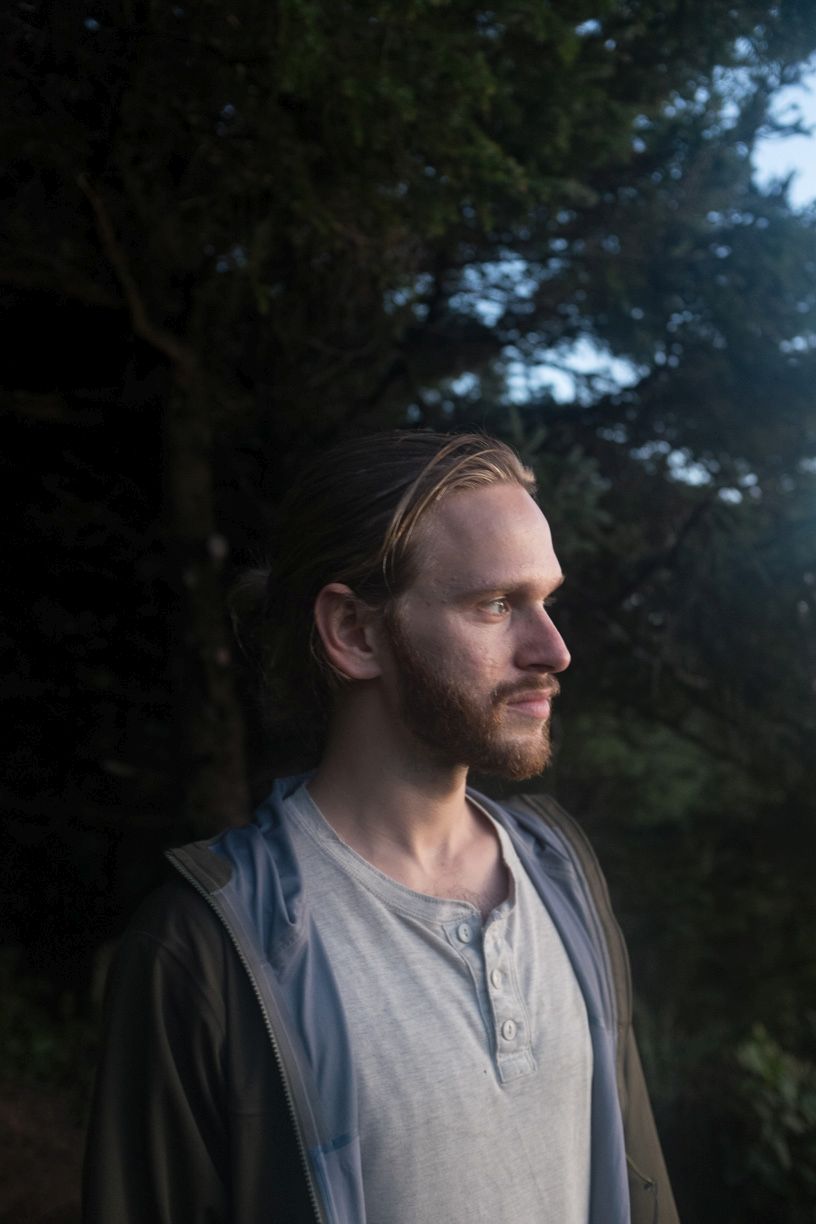
Art can be a way of dealing with the big topics in life: Life, loss, death, love, pain, and many more. In which way and on which occasions has music – both your own or that of others - contributed to your understanding of these questions?
Definitely. I think that story I told about “Friendship Song” definitely has something to do with my dealing with the prospect of death and really feeling like in the face of that I really want and need to seize each moment of life fully, and to do so fully with connected with those around me that I love, because it really is fleeting.
I think that sense of feeling connected and presence I’ve been talking about in previous questions, is part of that function of music helping me deal with all of those questions and challenges. It’s an important mode of processing. We all just do it naturally and automatically, we don’t need to be conscious of it.
How do you see the connection between music and science and what can these two fields reveal about each other?
Science is dope. I appreciate science and scientists. I feel like we have much more in common than is generally appreciated and think it would be cool if our communities interacted more. To be honest I’m not sure if they have a lot to reveal about each other, though I could be wrong, but I think they are two different, complimentary ways of understanding the world and ourselves, and learning more about each can create a fuller and more complete, rich perspective.
I think musicians should definitely learn about science, and even moreso I think that scientists and engineers should be studying and learning about music and the arts to have a more well-rounded picture of reality and life, ways to navigate the world. I think that’s really important and we could use more of that.
Creativity can reach many different corners of our lives. Do you feel as though writing or performing a piece of music is inherently different from something like making a great cup of coffee? What do you express through music that you couldn't or wouldn't in more 'mundane' tasks?
Hmm… I think the world is inherently really precious and special if you really pay attention.
Is a beautiful song more precious than a sunset or looking into your loved one’s eyes? I honestly don’t think so. But they are different, like I said earlier, music can express things that only artistic mediums are really able to communicate. If you can say it with words and language, then you’re suddenly a poet or a writer, not just a user of the English language.
I think maybe not everyone would agree, but gong back to the John Zorn four aspects of good art — craft, imagination, honesty and catharsis, I believe a cup of coffee can have craft and imagination even, and it can be a cathartic experience to drink it, but, is it cathartic or honest in the sense that you REALLY understand the person who brewed that cup of coffee? I don’t think so. I think that extra deep level of communication isn’t there in the same way. That’s what makes music and art special. (laughs)



